DDOT’s 16th Street transit plan will benefit Metrobus riders, drivers and taxpayers alike and could “break even” in just a year and a half.
We know the problems with buses on 16th Street NW: overcrowding, slow speeds, lengthy boarding times, and bunched buses. While both the District Department of Transportation (DDOT) and Metro have made several small but important improvements in the past two years to improve traffic flow and increase bus capacity on 16th Street, both agencies realize that more needs to be done. Now, after a year of detailed study in partnership with Metro, DDOT has developed a set of recommendations (PDF) that will save time and improve the customer experience in the coming years. As an added bonus, it comes with a relatively cheap price tag, yielding great value for taxpayers.
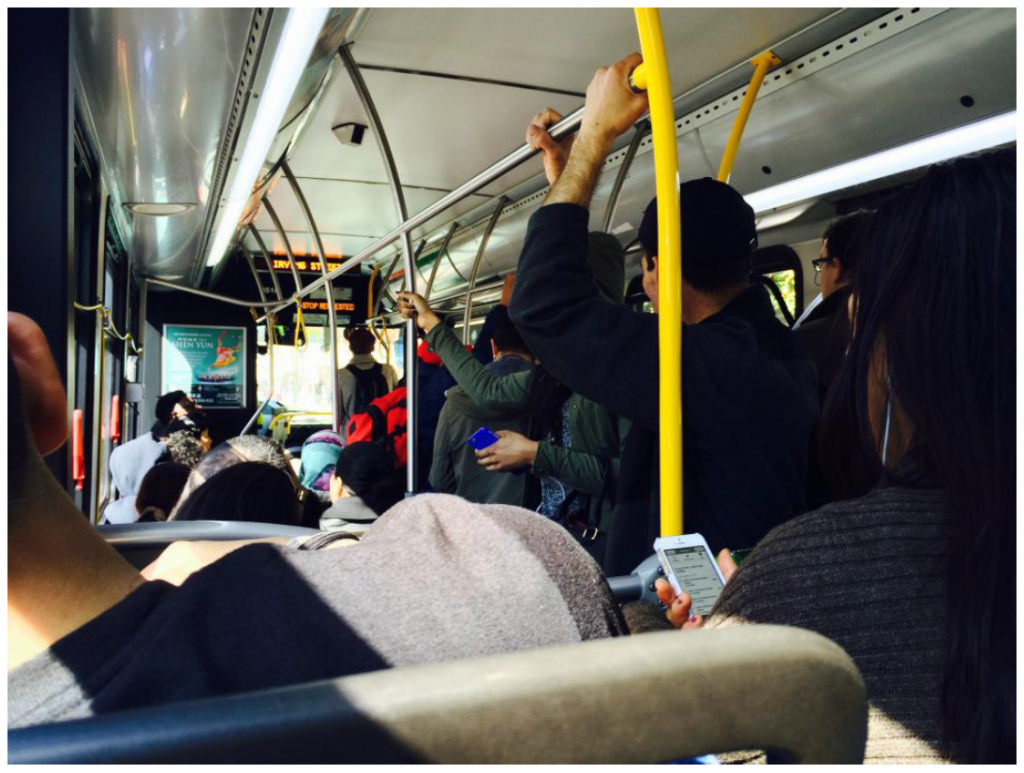
Riders aboard a crowded S-Line bus (click for study information)
Read more…
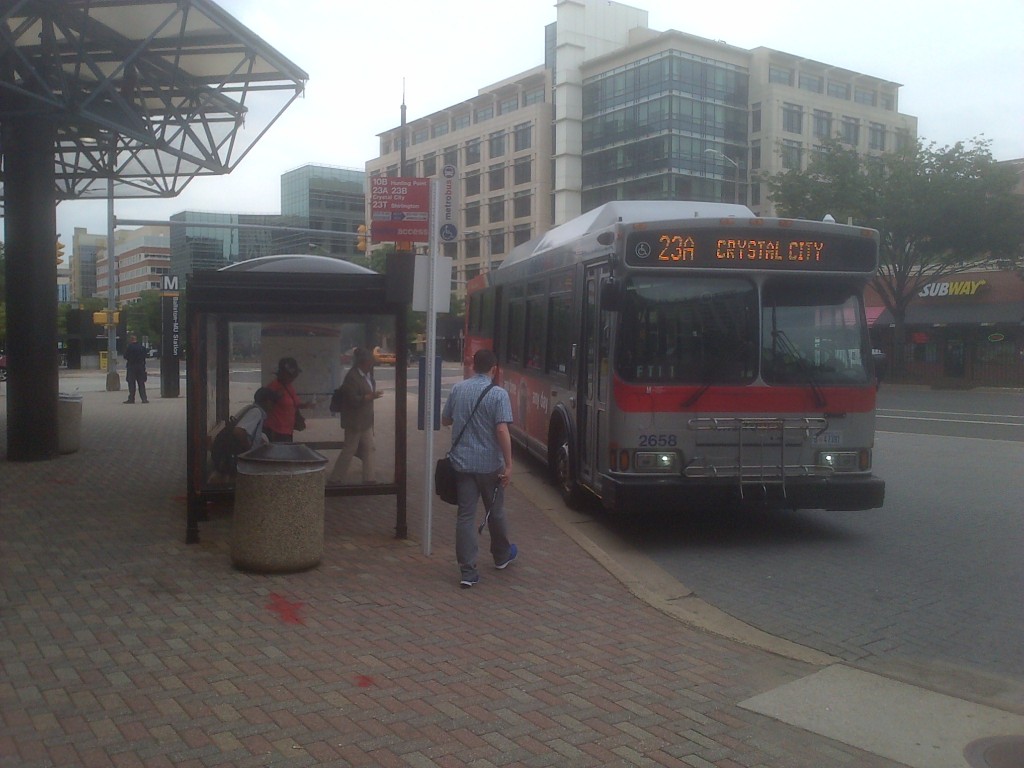
Customers boarding the 23A at Ballston
The distance between stops is of key concern to Metro and its customers. More closely spaced stops provide customers with more convenient access, as they are likely to experience a shorter walk to the nearest bus stop. However, closely-spaced stops are also likely to result in a longer ride for customers because of the number of times the bus stops — to decelerate, come to a complete stop and then accelerate and re-merge into traffic — is increased. This also can lead to increased fuel and maintenance costs.
Having fewer stops along a bus route benefits passengers not only by reducing the time it takes for them to make their trip, but by making the service more reliable and predictable.
Read more…
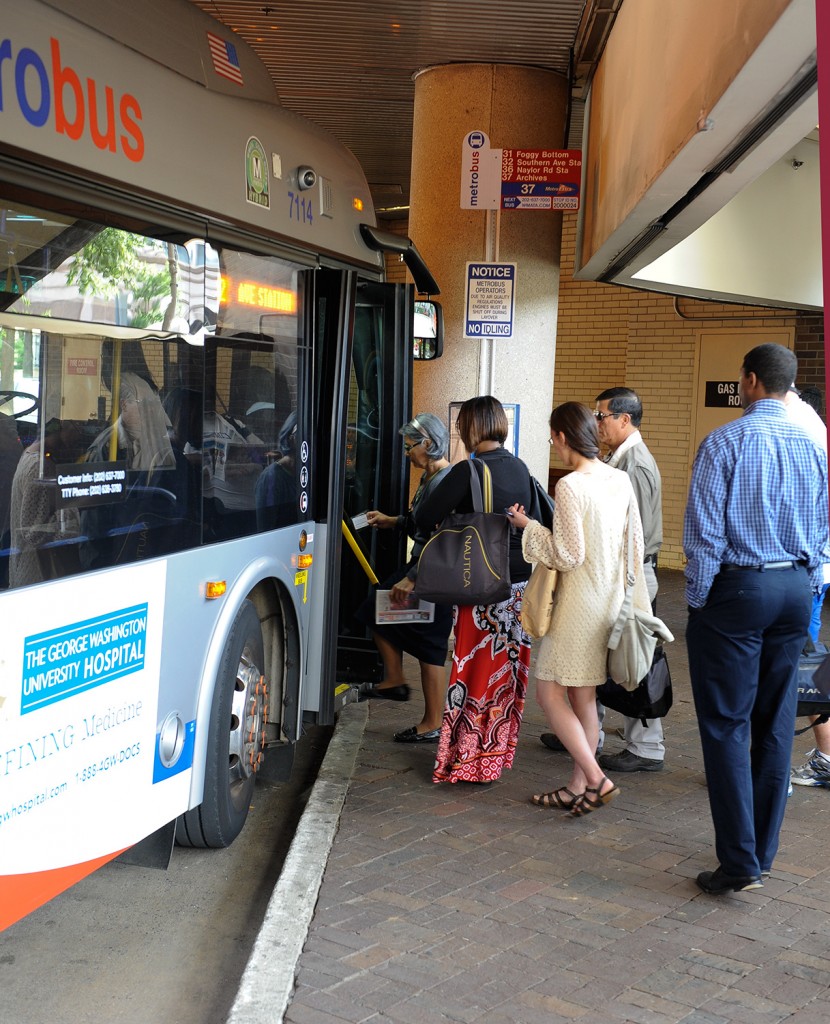
Boarding the 30s Line at Friendship Heights
The distance between stops is of key concern to Metro and its customers. More closely spaced stops provide customers with more convenient access, as they are likely to experience a shorter walk to the nearest bus stop. However, closely-spaced stops are also likely to result in a longer ride for customers because of the number of times the bus stops — to decelerate, come to a complete stop and then accelerate and re-merge into traffic — is increased. This can lead to degraded service quality for bus passengers and increased maintenance, and operating costs for Metro.
Having fewer stops along a bus route can benefit passengers not only by reducing the time it takes for them to make their trip, but also by making the service more reliable and predictable. When stops are analyzed, several factors will cause them to be taken out of consideration for removal. These reasons include stops in front of a school, house of worship, community center, senior housing, park, transfer point, or other popular amenities. These bus stops will not be removed irrespective of usage.
Read more…
December 13th, 2013
Jamie
Metro bus planning proposes 22 bus stops for removal along the 96/97 routes.
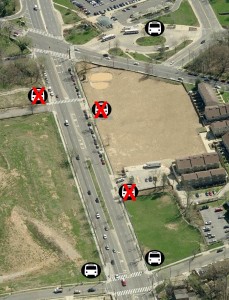
East Capitol Street, looking east-southeast just west of Capitol Heights Station, where two east-bound and one west-bound bus stop are proposed for removal.
In September, WMATA selected 27 stops for consideration to discontinue on the 96/97 route to provide faster service. All 27 stops are within a block or two of another stop. The list was posted on this blog, and wmata.com. Notices were posted at the affected stops, and WMATA met with representatives of council members’ offices whose districts are served by the two routes, and corresponding ANCs in September 2013. There was a month-long period where members of the public commented on the list via phone, email, and blog post.
Following the public feedback, five bus stops that had been under consideration will remain in service:
- East Capitol Street & 15th Street NE/SE, eastbound and westbound, due to the proximity to the Center City Charter School Capitol Hill
- Woodley Road & 35th Street NW, eastbound and westbound, due to their proximity to The Beauvoir, The National Cathedral Elementary School, and
- East Capitol Street & 52nd Street SE, eastbound, due to its location in front of the Episcopal Church of the Atonement.
In total, 22 bus stops will be discontinued, 12% of the total stops on the 96/97 route. Maps showing the bus stops to be removed at the December 29, 2013 service change are shown below. Two weeks prior to the service change, notices will be posted at the affected stops informing customers of the change. The notice will also include information on next closest bus stops.
The bus stops that will be discontinued are: Read more…
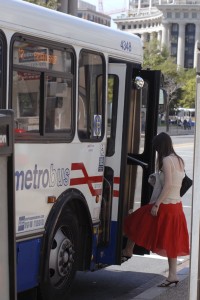 The distance between stops is of key concern to Metro and its customers. More closely spaced stops provide customers with more convenient access, as they are likely to experience a shorter walk to the nearest bus stop. However, closely-spaced stops are also likely to result in a longer ride for customers because of the number of times the bus stops — to decelerate, come to a complete stop and then accelerate and re-merge into traffic — is increased.
The distance between stops is of key concern to Metro and its customers. More closely spaced stops provide customers with more convenient access, as they are likely to experience a shorter walk to the nearest bus stop. However, closely-spaced stops are also likely to result in a longer ride for customers because of the number of times the bus stops — to decelerate, come to a complete stop and then accelerate and re-merge into traffic — is increased.
Having fewer stops along a bus route benefits passengers not only by reducing the time it takes for them to make their trip, but by making the service more reliable and predictable. Customer benefit is maximized when the only stops considered for removal have low average weekday ridership for boarding and alighting. We have chosen the 96/97 line, known as the East Capitol Street-Cardozo line, which runs between Capitol Heights Station, Stadium-Armory Station, Union Station, U Street Station, Woodley Park Station, and Tenleytown Station. Some of the bus stops in the Woodley Park area are also served by the X3 route.
Read more…






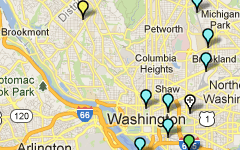
Recent Comments